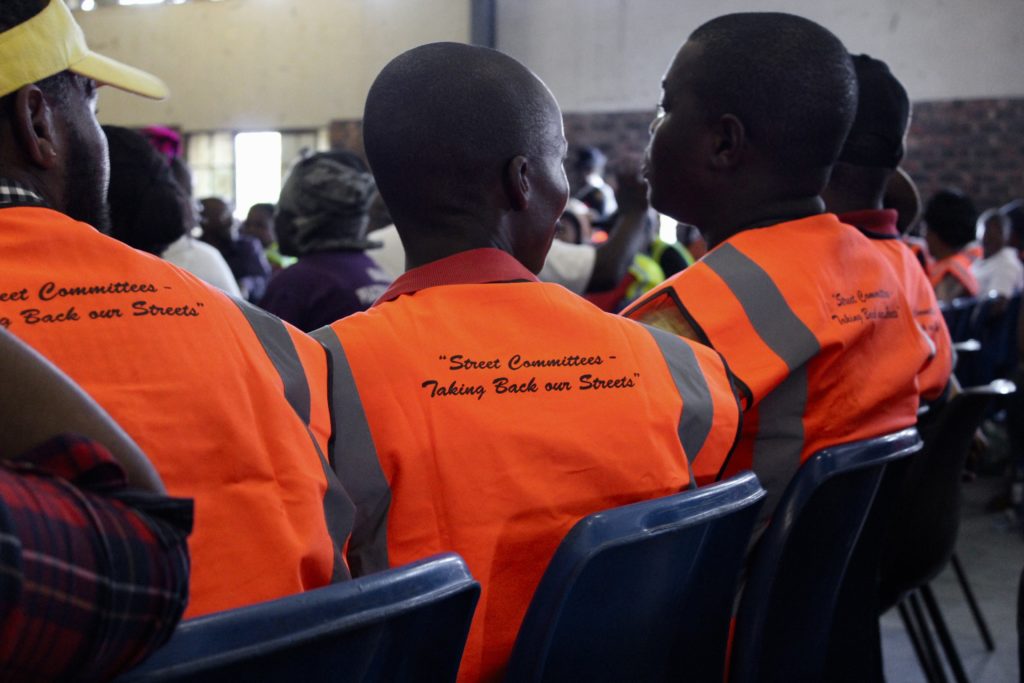
On 7 March, citizens from Grahamstown East took part in an exciting event at BB Zondani Hall in Fingo Village. The South African Police Service (SAPS) in conjunction with Makana Municipality launched the community street committees initiative as a way to improve safety and reduce crime.
The initiative serves as a way to empower citizens and encourage visible policing within communities that suffer from high crime rates.
Reverend Gxaleka opened the event by emphasising the importance of building relationships in the community. “We must build relationships so we can speak with one voice,” he said. Speaking to the issue of halting crime, he said, “We need people to do umsebenzi [the work].”
Ward Councillors Rami Xonxa and Luyanda Sakata, as well as Mayor Nomhle Gaga were joined in attendance by Brigadier David Kanuka, head of the SAPS Grahamstown Cluster, CPF Cluster Board Chairperson Glenda Duffy, as well as the Director of Community Police Relations, Neil Naidoo.
Naidoo said in his address that the primary objective of Street Committees was to involve communities of a particular area to contribute to a happy, peaceful and productive environment by taking greater interest and responsibility for their community.
Some of the key functions of Street Committees:1. To participate in community police activities2. Conduct joint foot patrols with SAPS3. Reporting to the Sector Crime Forums4. Cooperate with SAPS and CPF5. Provision of information to SAPS6. Monitor taverns to ensure that they close on time and theydo not sell alcohol to minors7. Inform the police about the existence of illegal shebeens.
The street committees will be working alongside community police forums (CPFs) and the South African Police Service. Members are mandated to immediately report any crime that they witness or hear about in their community. Street committee members will also be issued identification cards and notebooks to further carry out their community mandate.
The launch was a huge success, featuring musical performances by Samuel Ntsiko Primary learners, as well as free health care services. Local nursing sisters from Shumane and Joza Clinics offered HIV testing, as well as other vital checks.
Naidoo concluded his address with a quote from Nelson Mandela: “Safety and security do not just happen, they are the result of collective consensus and public investment. We owe our children, the most vulnerable citizens in our society, a life free of violence and fear.”
With vision 2030 of the National Development Plan in mind, it is the hope that the implementation of these vital street committees will bring Makana into a brighter and safer future, free of crime.


